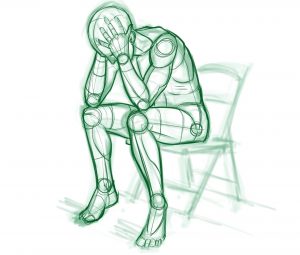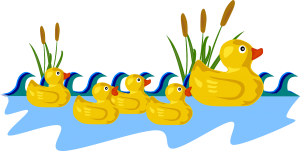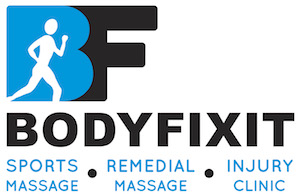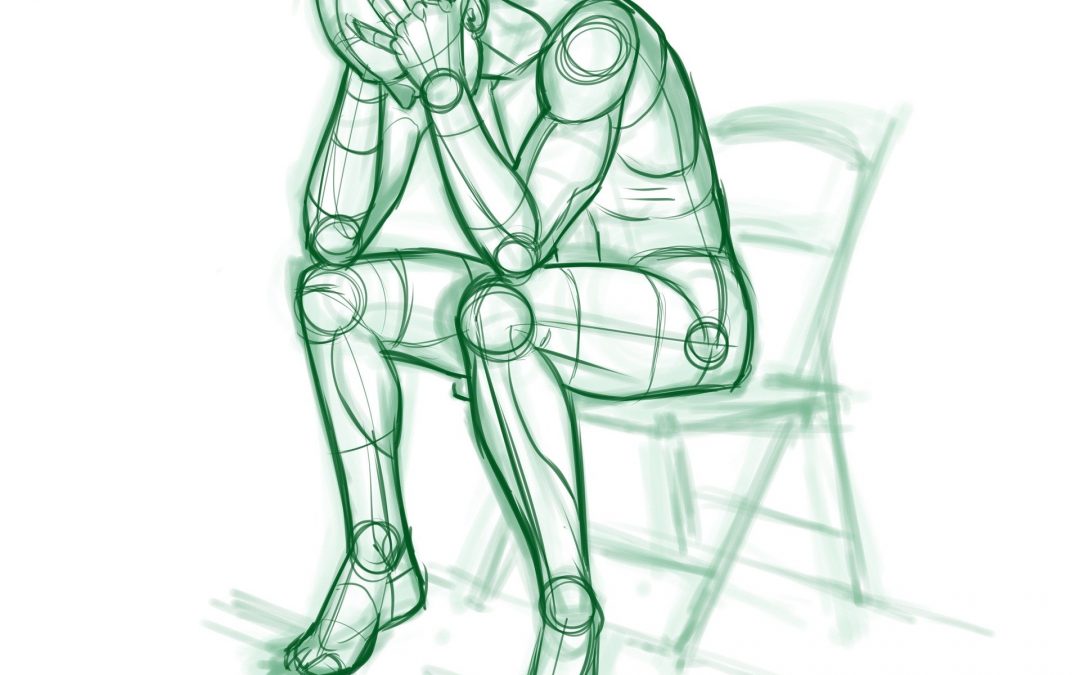The measures taken to curtail the spread of COVID-19 have been drastic, massive and immediate and very necessary. Our world has changed radically, and now many of us are far more worried and apprehensive than usual!
As racing thoughts, pounding pulses and ever-present fear become our norm, attending to our anxiety is more critical than ever. To get some expert advice, we spoke to Nikki Emerton of Be U…
The measures taken to curtail the spread of COVID-19 have been drastic, massive and immediate and very necessary. Our world has changed radically, and now many of us are far more worried and apprehensive than usual!
As racing thoughts, pounding pulses and ever-present fear become our norm, attending to our anxiety is more critical than ever. To get some expert advice, we spoke to Nikki Emerton of Be U…
First things first, we deal with what it is!
In a nutshell, anxiety is trying to keep us alive! |
Some Notes

Are there needs that we may be neglecting at the moment?
Yes! Many of us will be in survival mode and not meeting those other needs, which are important to prevent us from spiraling down to just being reactive to the situation we’re in. This can bring a sense of helplessness, when you find yourself in that passive state, which in turn increases anxiety.
We do need to pay attention to our other needs and find other ways to meet them. eg. humans have the basic need to feel a sense of belonging, to yourself or a wider audience, but if that is being compromised, you need to find other ways to belong, such as online chats, networking, exercise classes, art.
If you need to belong to a bigger picture, typically extraverts, you’re going to need to pay attention and start taking action to meet those needs, otherwise you’ll decrease your level of mental resilience and the ability to be able to deal with everyday things.
Introverts need some interaction and connections with people to nourish themselves, and rather than feeling obliged to join online groups, just speaking to one person, your pets or plants may be enough.
Having resilience can feel like putting on a protective armour, but do we also need to let ourselves feel and recognise what’s going on?
My version of resilience would be that ability to bounce back even when you face adversity! Life does send us challenges.
Resilience is the ability to be able to bounce back even when those things happen, so whether it is putting armour on or whether it is digging yourself out of that hole, it is that ability to be able to be active in what happens next, rather than passive, because then you feel a sense of hopefulness, which is the antidote to anxiety. Any plan you think looks good will be a good one for you.
If you’ve found yourself distracted from those anxious thoughts for a period of time, whether it’s watching a movie, reading a book or exercising, that distraction will boost your morale and you need to focus on doing more of those beneficial things.
Using exercise as an example, some people may tend to overdo it if it distracts them from the worry, but the obligation and self pressure may be unhelpful. Perhaps some quieter activities that give mental space can be helpful too?
Anxiety is already increasing Adrenaline, Cortisol and other stress hormones, instead you need to increase the Dopamine, Oxytocin and Serotonin; the happy hormones and things that bring you joy. If exercise brings you joy then you’re increasing those happy hormones too, if exercise is something that you must or should do, they are just increasing your stress hormones.
Find what brings you joy, happiness, love and steer away from situations where you hear yourself using the words ‘must’ or ‘should’ as these tend to be someone else’s expectations and not your own, ask yourself if you actually want to. ‘I could’ is much better because ‘could’ brings about opportunity rather than necessity.
The physical symptoms of stress such as increased tension & disturbed sleep can also be a problem – what are your tips to get the brain, gut and body health flowing better?
First, notice if you’ve spent most of the day feeling anxious. If so, then you need a plan to take steps towards reducing that. It’s a journey, not a destination that everyone treds at a different speed and pace, which is OK!
There are also physical, psychological and passive things you can do to help yourself, it’s working out what’s best for you.
Breathing exercises – One is to just raise your shoulders up to your ears and drop them as you breathe out. Having a longer out breath than the in breath is the key for changing the chemical composition in your body. Breathing is very powerful and often overlooked and practising or learning how to breathe is a very useful tool for managing stress.
Meditation in its many forms can also be helpful: absence of thought, guided, through movement and escapism.
Try things for size and pick those that work best and benefit for you.
It’s allowing ourselves that permission and time to explore what works for you, because perhaps that is what is important right now?
Finding the best fit and those healthy habits is very important. For example, if you’re a list writer, the first thing for the day is something for you, to prioritise yourself as an important person. Or, when you first get up, make the first thing you do a small act of self-kindness, even if it’s a cup of tea in the garden. Set the intention of prioritising you to help you stay resilient and buoyant, for others and yourself, so you are better able to bounce back when things are challenging.

buoyant family of ducks resilient to stress and anxiety
Can you explain the rubber ducks floating on the water?
It’s a metaphor from the founder of Osteopathy, who said that humans are like rubber ducks – we are designed to be buoyant in life. Our bodies know what they need to do to survive and are really good at bouncing back.
If you don’t bounce back, something is weighing or holding you down. Once you’ve worked out what that is, you can work to get rid of it, however long it takes, and bounce back up.
So in summary, what simple tips can people try right now to help with anxiety?
Tip 1: If your sleep pattern has gone down the drain, sort that out first as sleep helps to maintain buoyancy and resilience. So check on your sleep hygiene and routine!
Tip 2: Do something for you that brings you joy, happiness or laugh everyday, carve out time for yourself.
Tip 3: The Serenity prayer – Have the serenity to accept those things that you can’t change, have the courage to change those things that you can and the wisdom to know the difference.
At the moment, people feel they are in a protective bubble. How do they then get comfortable with the prospect of coming out of their bubble?
Don’t be too hard on yourself! Be kind and compassionate to yourself and take baby steps. Whenever we find ourselves in a situation we look through our internal filing cabinet and think ‘what did we do here?’ But that filing cabinet is empty and we have no idea what to do.
Start coaching yourself: what needs to happen next, will I need to get comfortable with doing this, how am I going to do that, what’s the first step towards doing it.’ Overwhelm often comes together with anxiety and overwhelm is when we try things that are too complicated, complex and try to deal with too many things at one time.
For each step, set yourself up with ‘yes I can do that’, as you’re much more likely to succeed with confidence and much less likely to feel anxious and to doubt it.
Use even the smallest successes to give yourself the confidence and internal knowledge of knowing that you can. By focusing on all the things that you have achieved, you can start building your self validation that you are capable.
If you’d like more information Nikki, check out her website https://www.beu.org.uk/
Nikki also specialises in helping children with anxiety, for more information visit her Happy Confident Kids website.
If you’d like more information Nikki, check out her website https://www.beu.org.uk/
Nikki also specialises in helping children with anxiety, for more information visit her Happy Confident Kids website.

